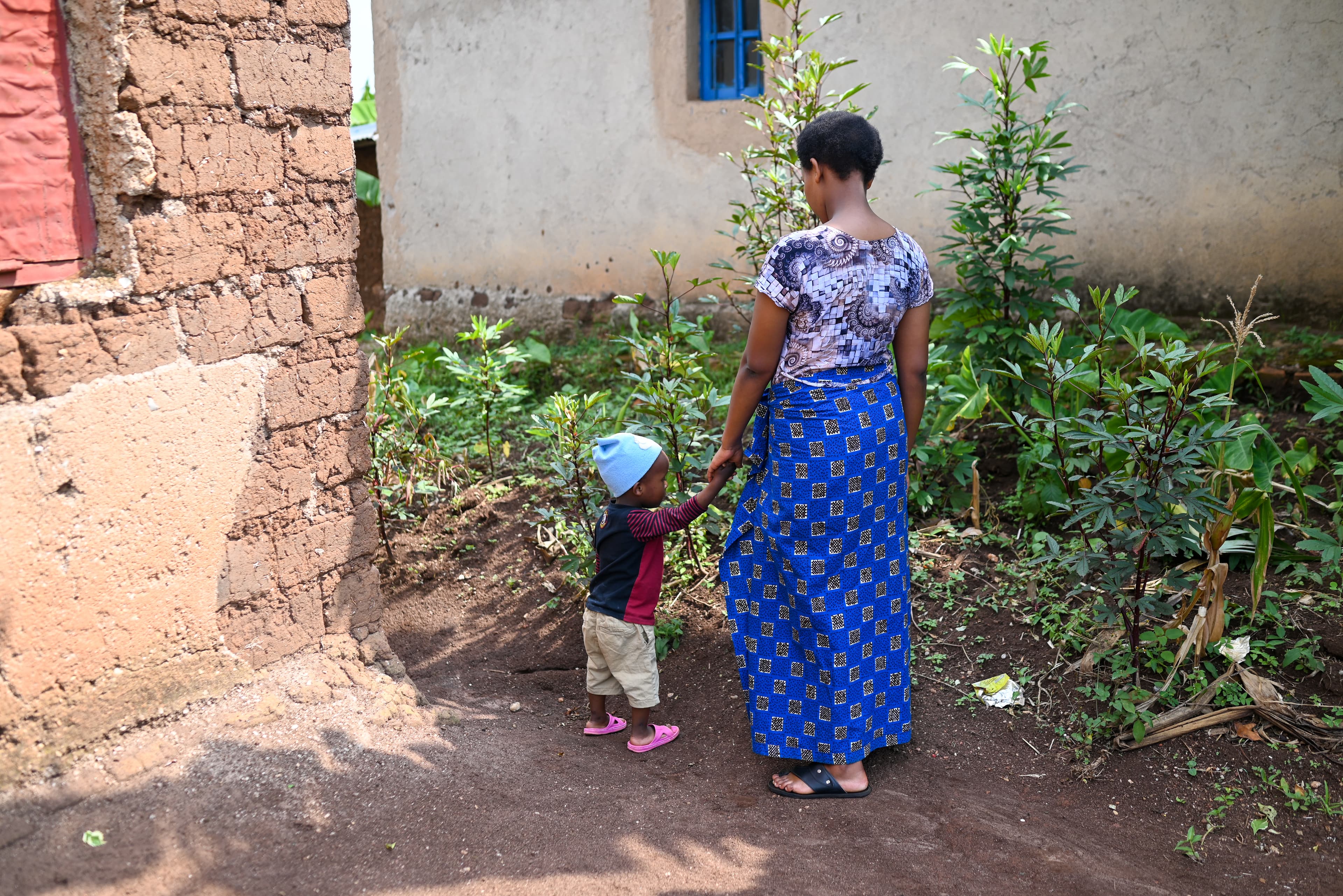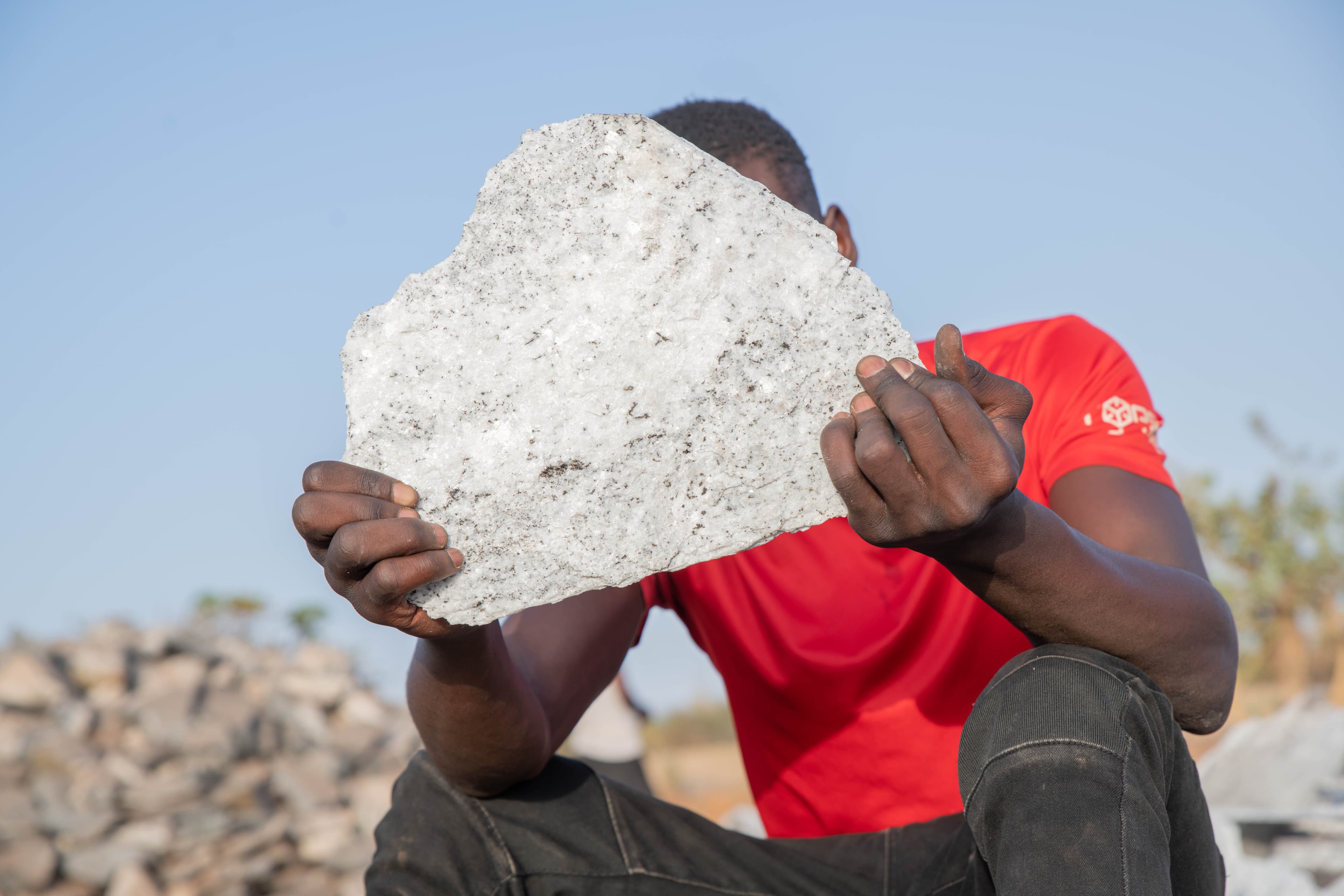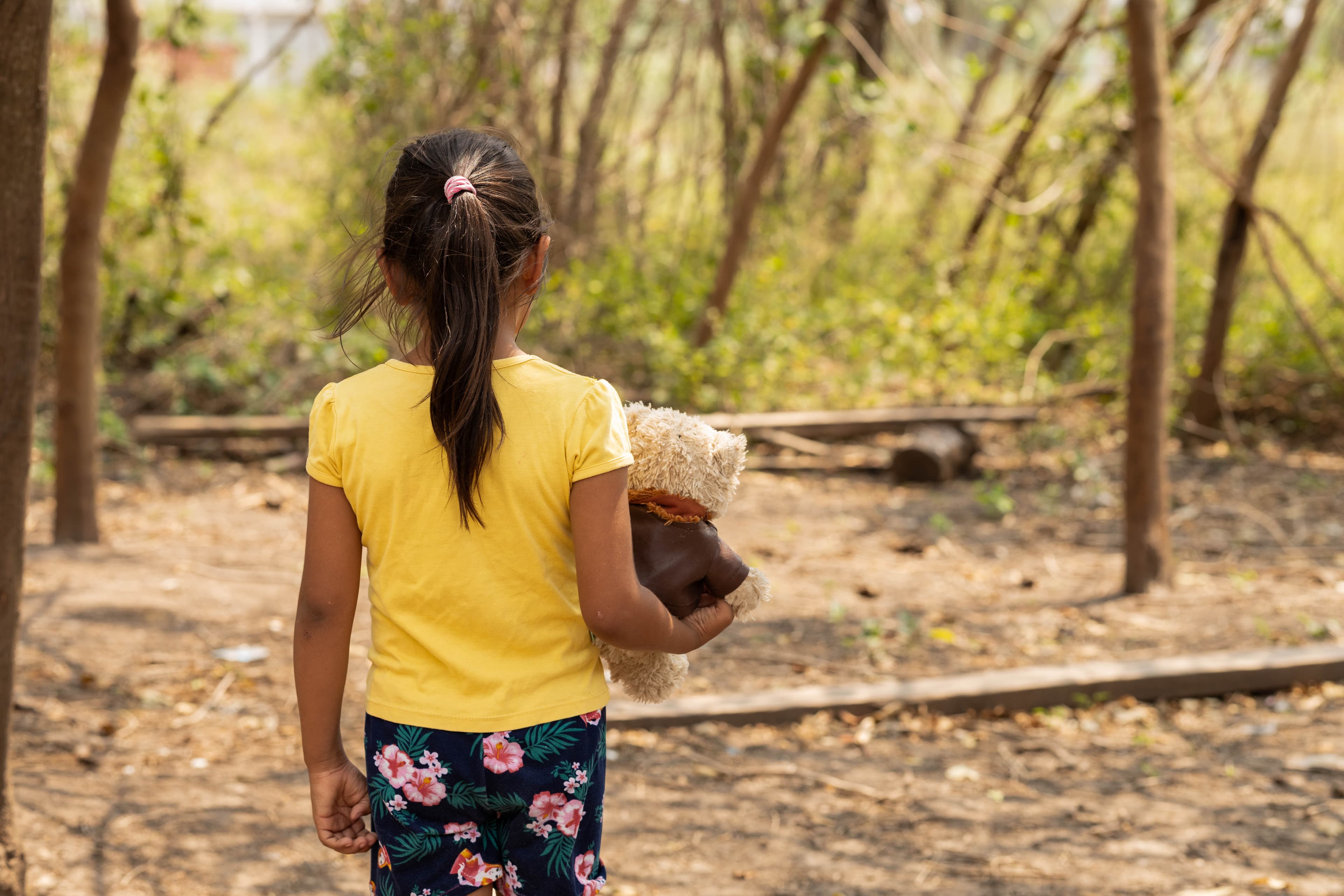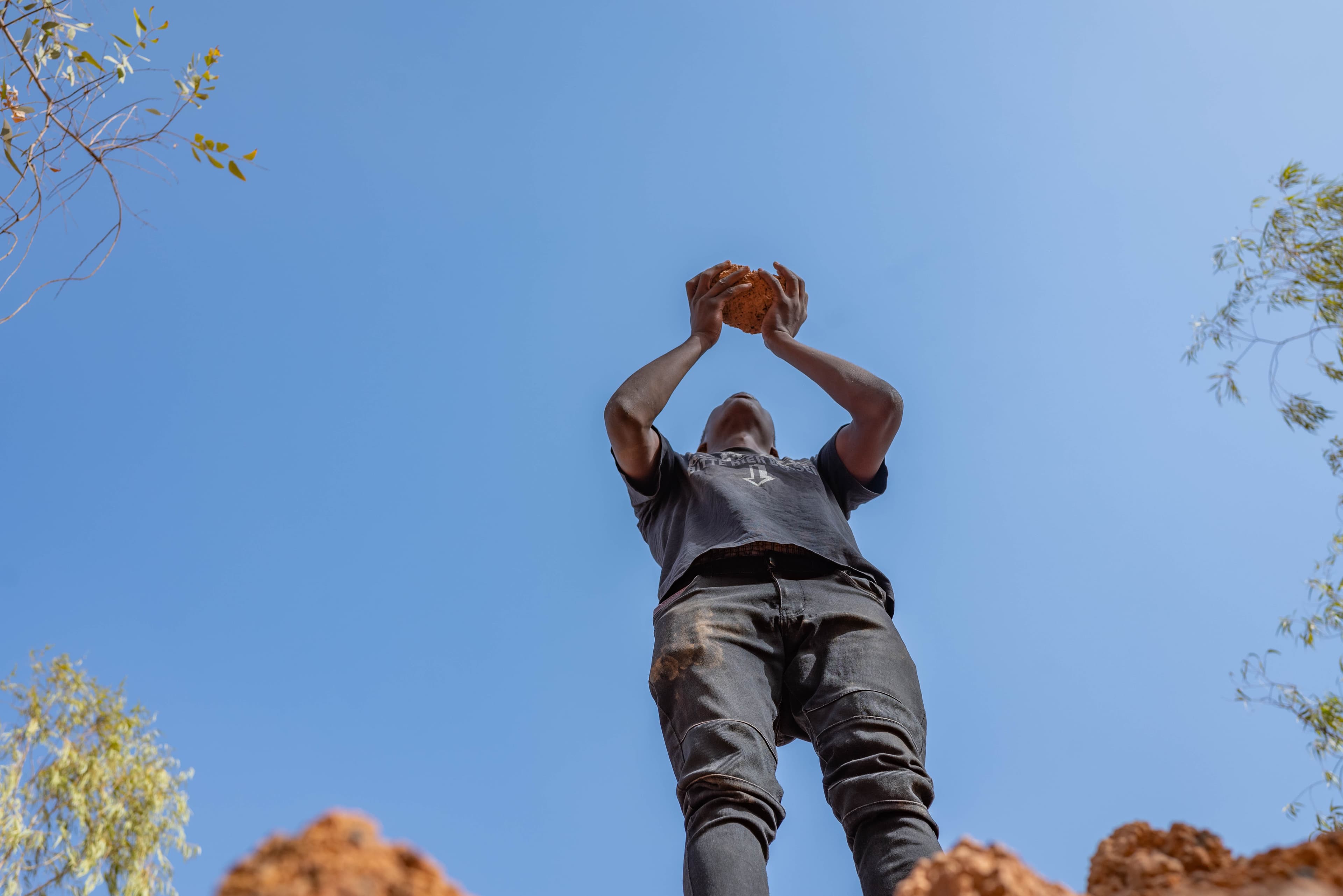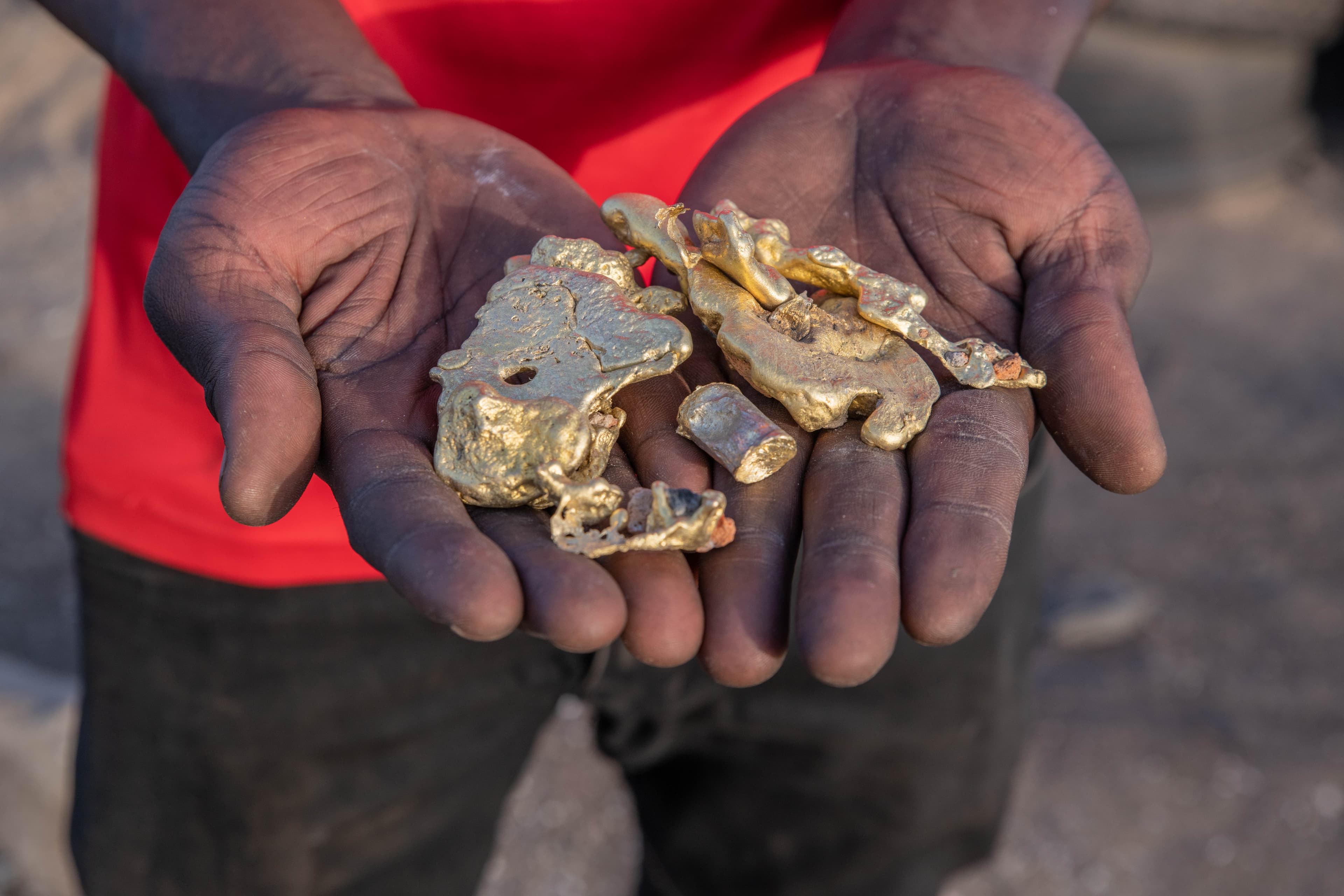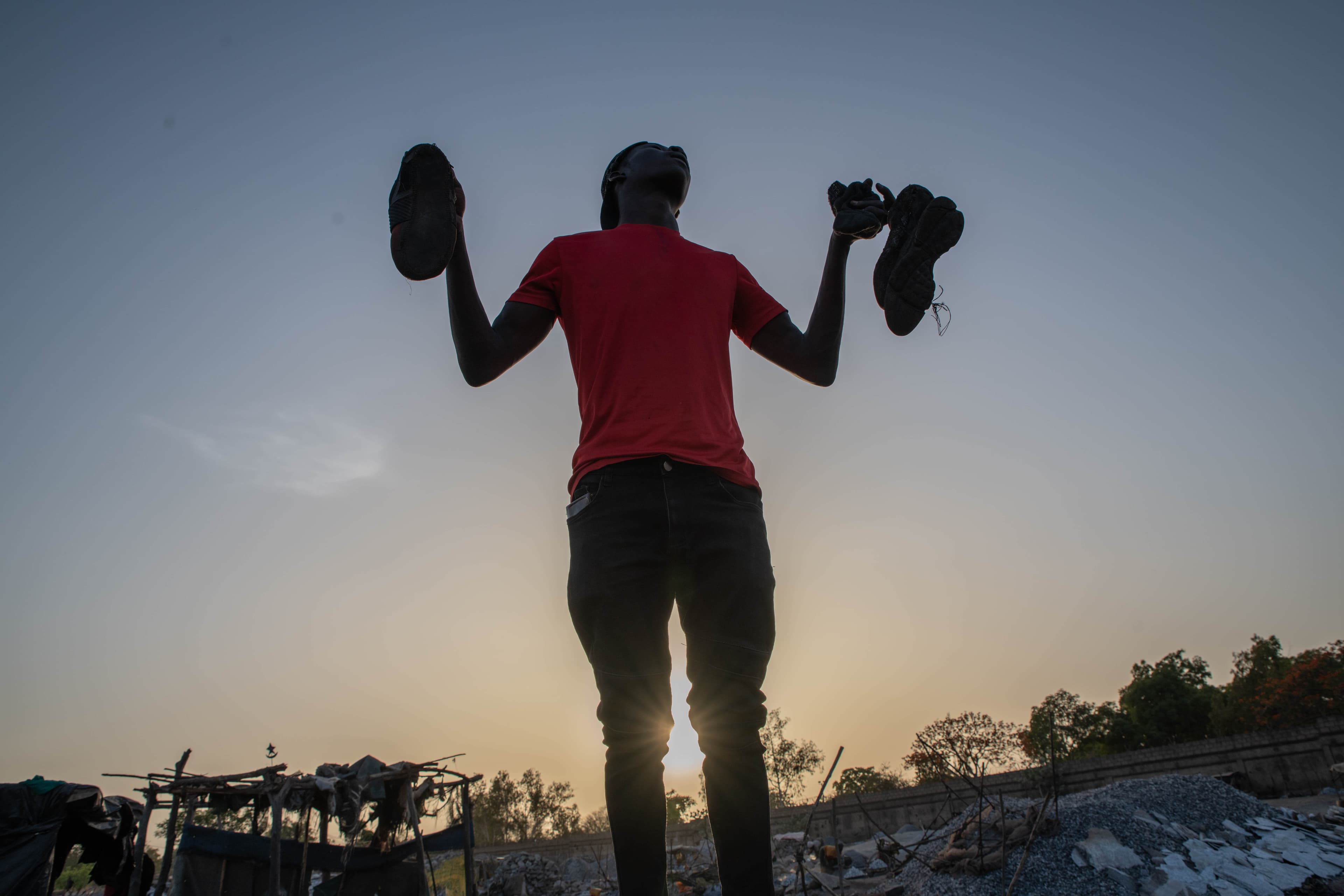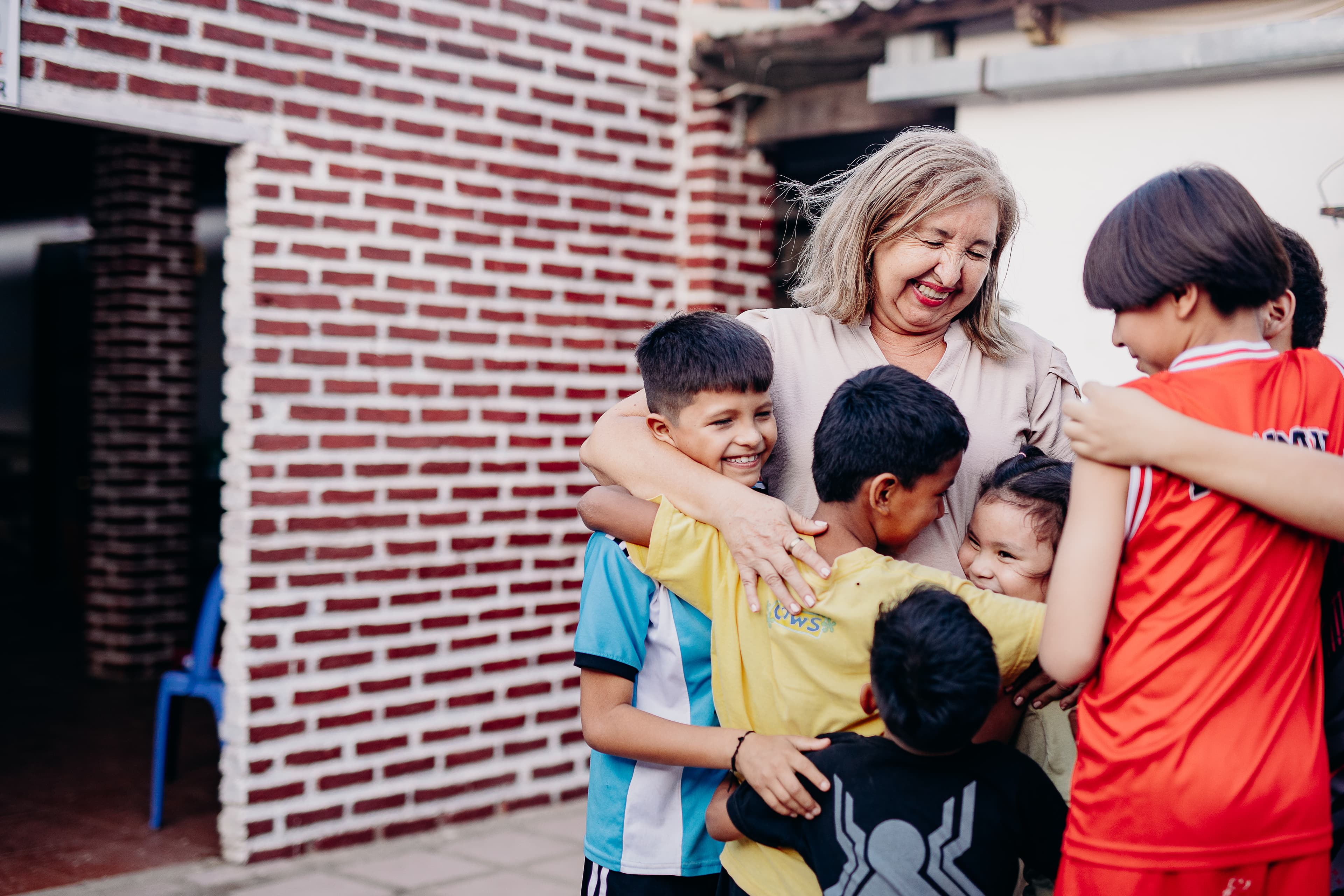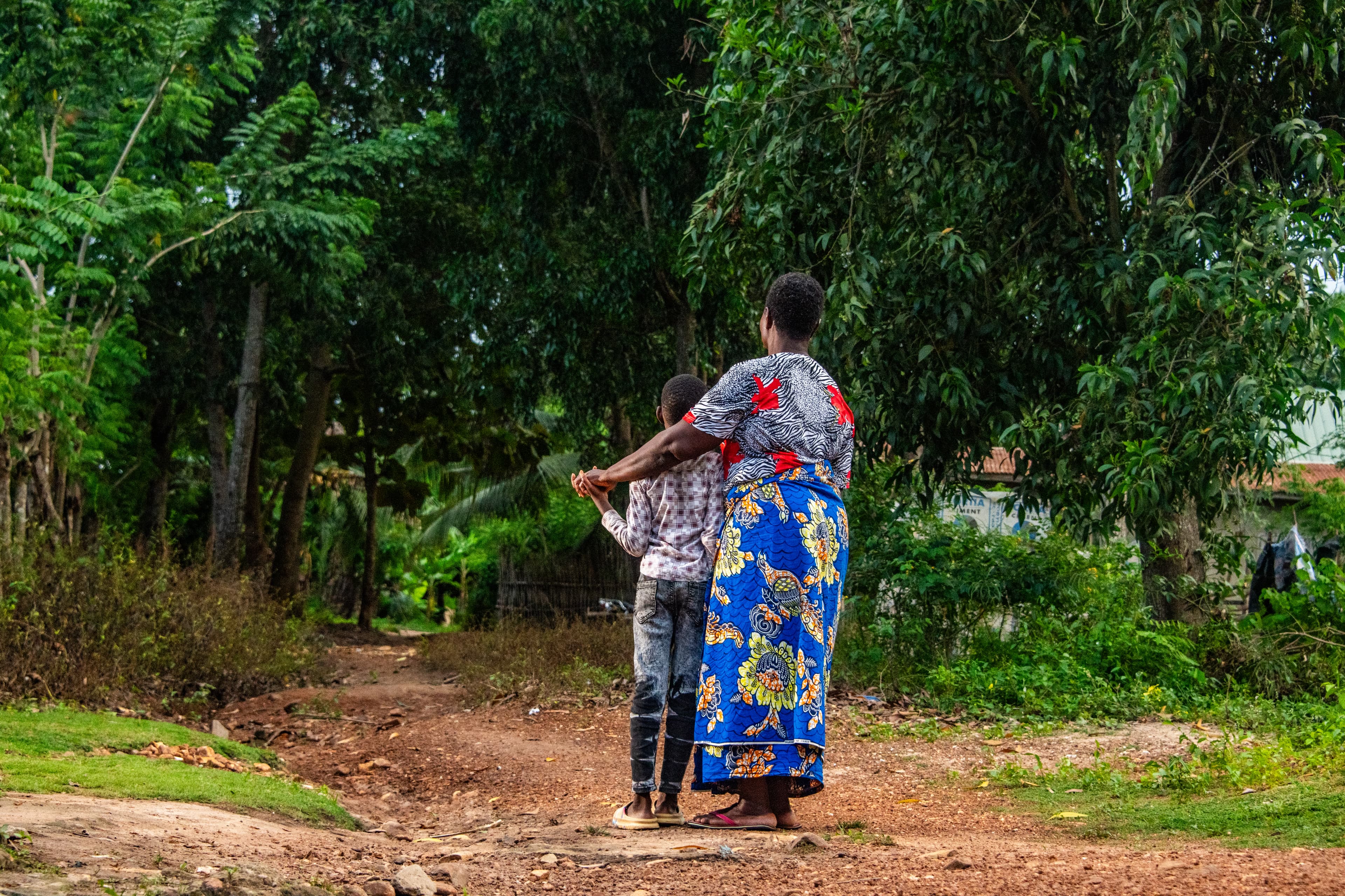Human trafficking happens when a human being is tricked, forced or coerced into performing manual labor, domestic servitude or commercial sex acts.
Adults and children living in poverty are especially vulnerable to human trafficking.
Child trafficking accounts for one-third of all human trafficking cases.
5 Important Human Trafficking Facts to Know
Human trafficking is a global problem, affecting millions around the world. Here are some human trafficking facts and stats you should know:
According to UNICEF, children account for 28% of identified trafficking victims globally.
Per the United Nations on Drugs and Crime (UNODC), every country in the world is affected by human trafficking, “whether as a country of origin, transit or destination for victims.”
The most common form of human trafficking (79%) is sexual exploitation. Victims of this form of trafficking are primarily women and girls.
The second most common form of human trafficking (18%) is forced labor.
Women make up the majority of human trafficking victims. However, per the UNODC, the number of male victims has increased over the years, with recent data showing 23% of victims as men and 17% as boys.
What Is Human Trafficking?
Human trafficking is when a human being is tricked, forced or coerced into performing manual labor, domestic servitude or commercial sex acts. Most of the time, these services are then sold for profit.
Human trafficking affects millions of people around the world, including women, men and children. The consequences are devastating, ranging from overwhelming trauma and suicidal thoughts to deadly diseases, such as HIV.
Human Trafficking and Poverty
Those living in poverty are especially vulnerable to trafficking. Families living in impoverished communities struggle to fulfill even their most basic of needs, from food to clean water.
As they struggle to provide for their families, desperation sets in. They may fall victim to false promises from those who seek to take advantage of them.
Unfortunately, impoverished victims also lack the resources and support they need to move beyond the trauma of trafficking. Many can’t access critical medical care or counseling, leaving them suffering through the aftermath alone.
Child Trafficking: One-Third of All Trafficking Cases
Children are especially vulnerable to human trafficking, as they make up one-third of all cases. Child trafficking robs children of their childhoods, exposing them to horrific trauma and stunting their healthy development.
What Are the Different Types of Child Trafficking?
All the activities forced upon adults (manual labor, domestic servitude and commercial sex) can unfortunately be forced upon children. While commercial sex trade is the largest area of trafficking, forced child labor, such as working in mines and quarries, is also common.
Other forms of child trafficking include:
Domestic servitude and domestic slavery (i.e., nannies, cooks, cleaners, elder care, etc.).
Forced marriage.
Forced soldiering.
Criminal activity.
Benefit fraud (i.e., illegally claiming financial benefits from welfare programs).
What Causes Child Trafficking?
Financial gain is often why people exploit children. If there’s money to be made, children will be trafficked, even with law enforcement working to end the evil.
As discussed above, poverty contributes to child trafficking, as children in poverty are left vulnerable to exploitation. In addition to poverty, other contributors often include:
Weak or no law enforcement: Because trafficking is so profitable, some countries see no incentive to prosecute child traffickers. Other countries may want to prosecute but may not have the resources to hold criminals accountable.
Cultural norms: Some forms of exploitation, such as forced marriage, are common practices in some cultures and aren’t seen as unusual or criminal.
War: If a child’s parents are killed or displaced during armed conflict, they leave children orphaned. Without family members to protect them, children are even more vulnerable to kidnapping and exploitation.
Lack of education: Not understanding the horrors of child trafficking places young people in harm’s way. And if they lack skills like reading and writing, they may struggle to find employment once they reach their teenage years, leaving them feeling as if they have no choice but to volunteer themselves to traffickers in ignorance.
The Consequences of Child Trafficking
The consequences of child trafficking are heartbreaking. Children victimized by trafficking suffer physically, mentally and emotionally.
For example, children forced into labor may suffer physical trauma from hazardous working environments. Children forced into commercial sex acts are at a higher risk of sexually transmitted diseases, such as HIV, gonorrhea and chlamydia.
In some cases, children could be deprived of food and other necessities, leading to development issues such as stunted growth.
Physical trauma can lead to mental health disorders, such as post-traumatic stress disorder and intense social anxiety. And victims who escape their captors or are rescued may find it difficult to trust people in their lives, including those they have no reason to fear.
How Compassion Combats Child Trafficking
Child trafficking lies to children, telling them they’re only worth what they can give to others. But at Compassion, we believe what God says about children: They are the greatest in the kingdom of heaven (Matthew 18:3-4). And it’s our duty to protect God’s precious little ones.
That’s why child protection is our greatest priority. Each child in our child sponsorship program is surrounded by loving adults who make it their mission to know, love and protect them.
By partnering with local churches, we provide what children need to stay safe from exploitation. And we also intervene to protect them whenever necessary.
We meet each child’s right-now needs. Through our child sponsorship program, children receive malnutrition monitoring, medical checkups, education and other critical essentials. With these needs met, we lessen the burden on their families, calming the desperation that often leads to poor decisions.
We ensure children know their rights. We teach children about their God-given rights and show them how they can stand up for themselves and others.
We train our staff and volunteers. Every staff member and volunteer is trained on trafficking, exploitation and abuse. They learn how to spot the signs and how to take the necessary steps when they need to intervene.
We help children heal and recover. For victims of child trafficking, we provide quality medical care, counseling and safe, church-centered activities to help them heal and recover.
Meet Marali: A Story of Rescue
When 18-year-old Marali* from Africa left school for the summer, he sought a part-time job to help support his impoverished family. He was overjoyed when he met a man who promised him a job as a mason apprentice just two hours outside of town. And the pay? A whopping $800 in just three months.
“But the man said I must sit immediately on the bus that was ready to travel. Also, we were forbidden to inform family members or even go back home to carry extra clothes and shoes.” — Marali
Marali felt the job was his only chance to help his family make ends meet, so he joined the group. Soon, Marali was on a bus traveling much farther away than the man had promised. He found himself deep in the jungle, hundreds of miles from home.
Marali had fallen victim to a trafficker.
In the days to follow, Marali would find himself deep inside holes in the forest floor digging for gold with nothing more than one meal of beans each day. He worked from 5 a.m. to 8 p.m. without a break. And at night, Marali couldn’t sleep, as he was constantly surrounded by dangerous wildlife threatening his life.
Marali lived in constant fear. Would he survive another day in the holes? Would he survive another night of snakes and other deadly creatures? He quickly began to lose hope.
However, Marali’s tutor at his Compassion center had a dream that prompted her to reach out to Marali. When she realized Marali was missing, she reached out to Marali’s Compassion center director, and the two alerted police immediately.
Marali’s tutor had been able to reach him on his phone through chat. Hiding from his kidnappers, Marali was able to send a message that read, “Auntie, I don’t know where I am, but somewhere in a forest in Guinea.”
Marali’s tutor continued to support him from hundreds of miles away, sending him encouraging chats and reminding him of God’s love. Marali began to regain hope of returning home, helping him carry on each day.
After two months, police found and arrested Marali’s captor. Marali was sent back home, finally free. But upon his return, he was weak, frail and incredibly sick. Through the Compassion center, he received medical care and medication, helping him heal.
Now, Marali is using his experience to raise awareness among the young people in his community and those who visit the center.
“I am thrilled to be back at the center, and I am more than grateful to Compassion, the center, my tutor, and all the people who worked for my return. I would have ended in a grave without their intervention.” — Marali
*Name has been changed to protect his identity.
Combating Human Trafficking: How You Can Fight Back
Marali is one of millions of children and young adults who have faced dangerous trafficking threats. But rescue is possible if we all do our part.
Every action matters when it comes to fighting human trafficking. Key ways you can fight back include:
Understanding the signs and red flags of trafficking so you can be prepared.
Calling the National Human Trafficking Hotline if you have concerns about a potential trafficking situation.
Contacting lawmakers about strengthening enforcement measures and laws (like the Trafficking Victims Protection Act).
Volunteering with or donating to an anti-trafficking organization.
Staying informed and talking about the issue with friends and family.
Hosting an awareness event or community forum.
Avoiding purchasing goods or products produced by children or forced labor.
Preventing Human & Child Trafficking Before It Starts
The best way to fight back against human trafficking is to prevent it. And by partnering with Compassion, you can do just that.
Compassion works alongside local churches in impoverished communities to support vulnerable children around the world. Through child sponsorship, we protect children from exploitation, violence and abuse by surrounding them with loving adults who know, love and protect them.
As a sponsor, you’ll equip a local church to protect a child from trafficking. You’ll empower them to deliver the critical necessities a child needs to thrive, from nutrition to medical care. You’ll also encourage a child through messages and prayer, reminding them of the hope of the gospel, which lasts despite their circumstances.
